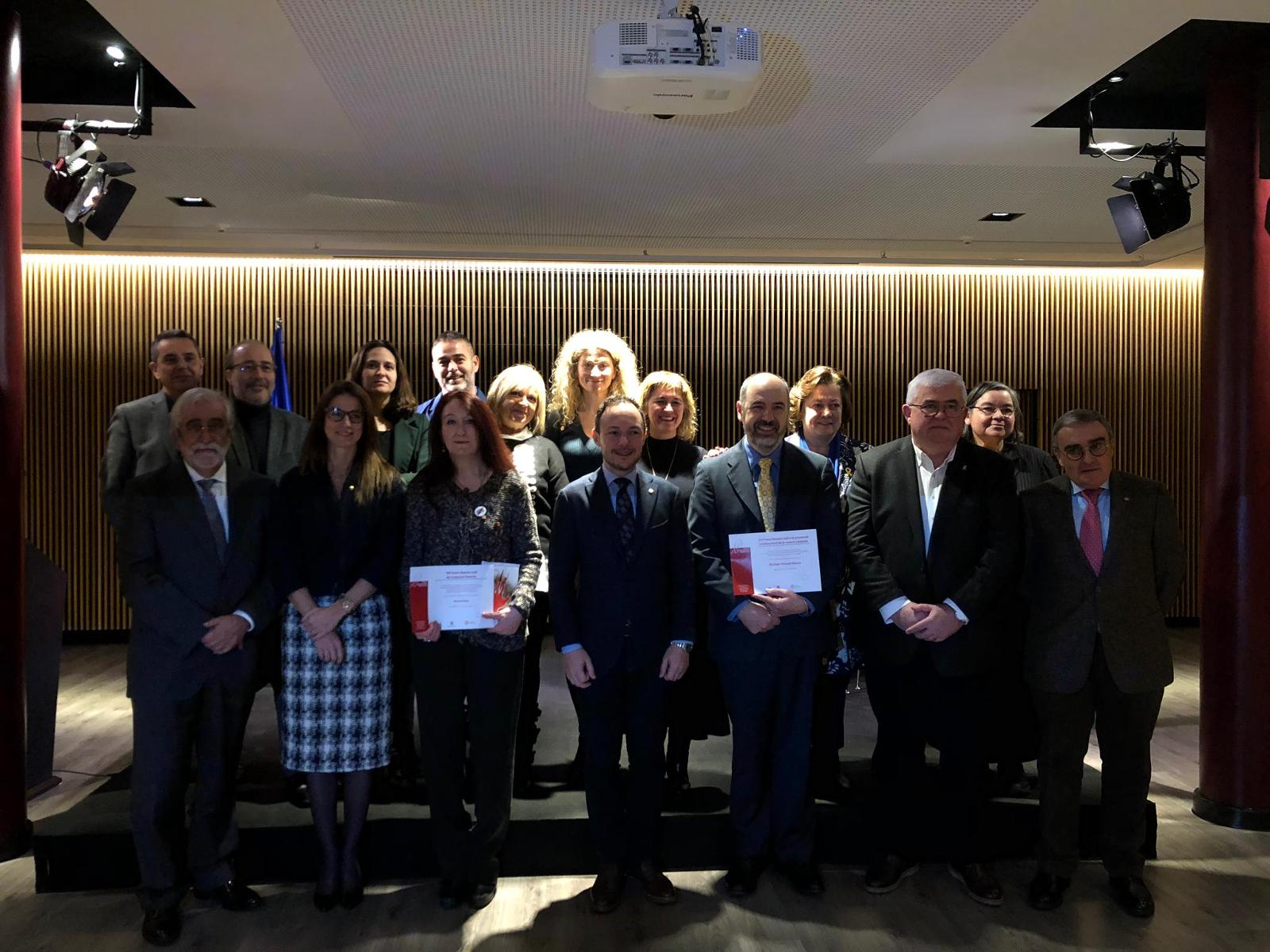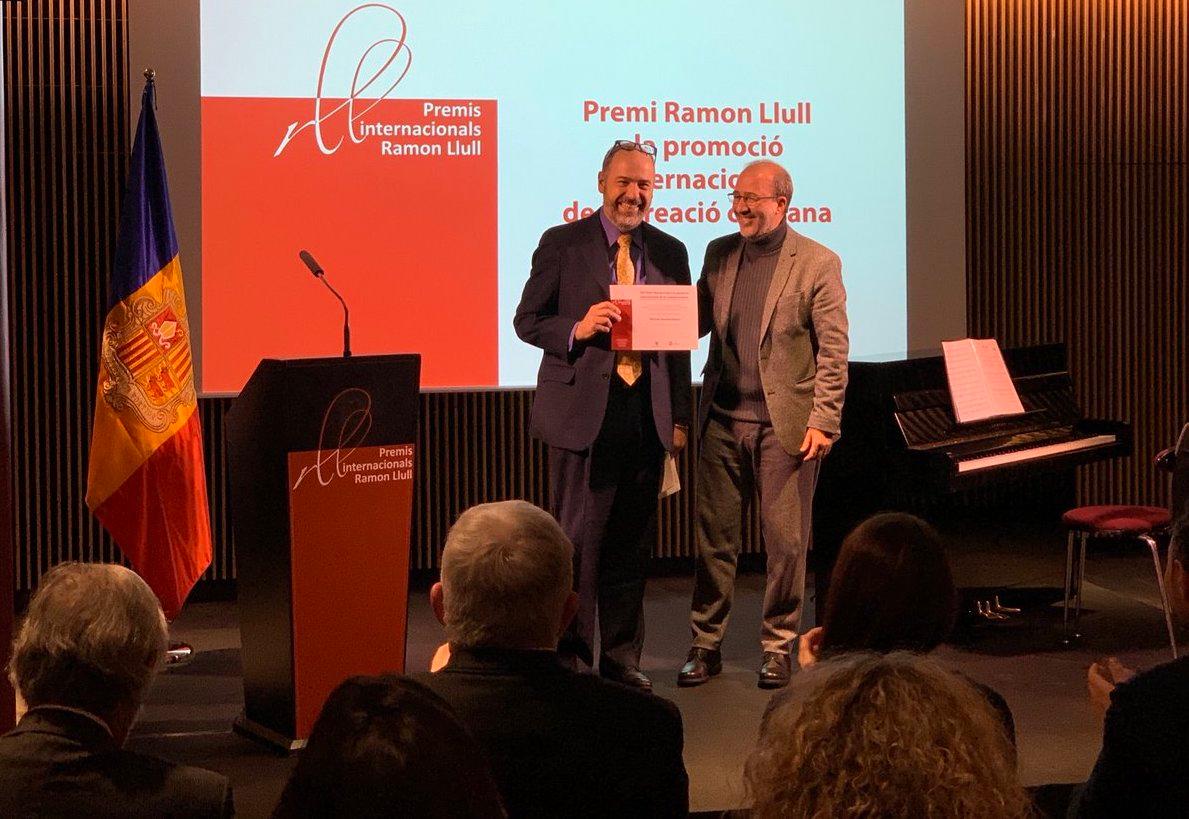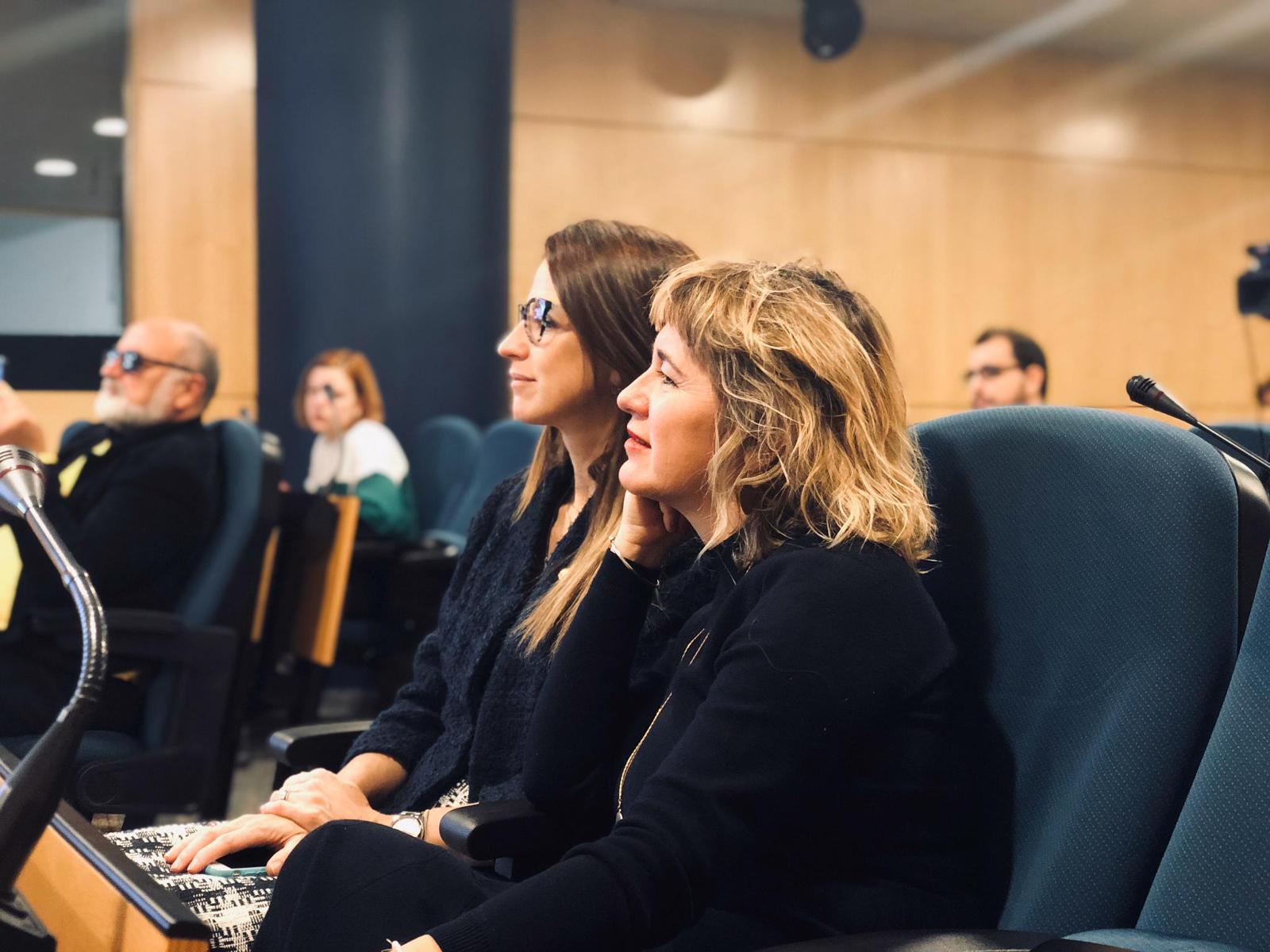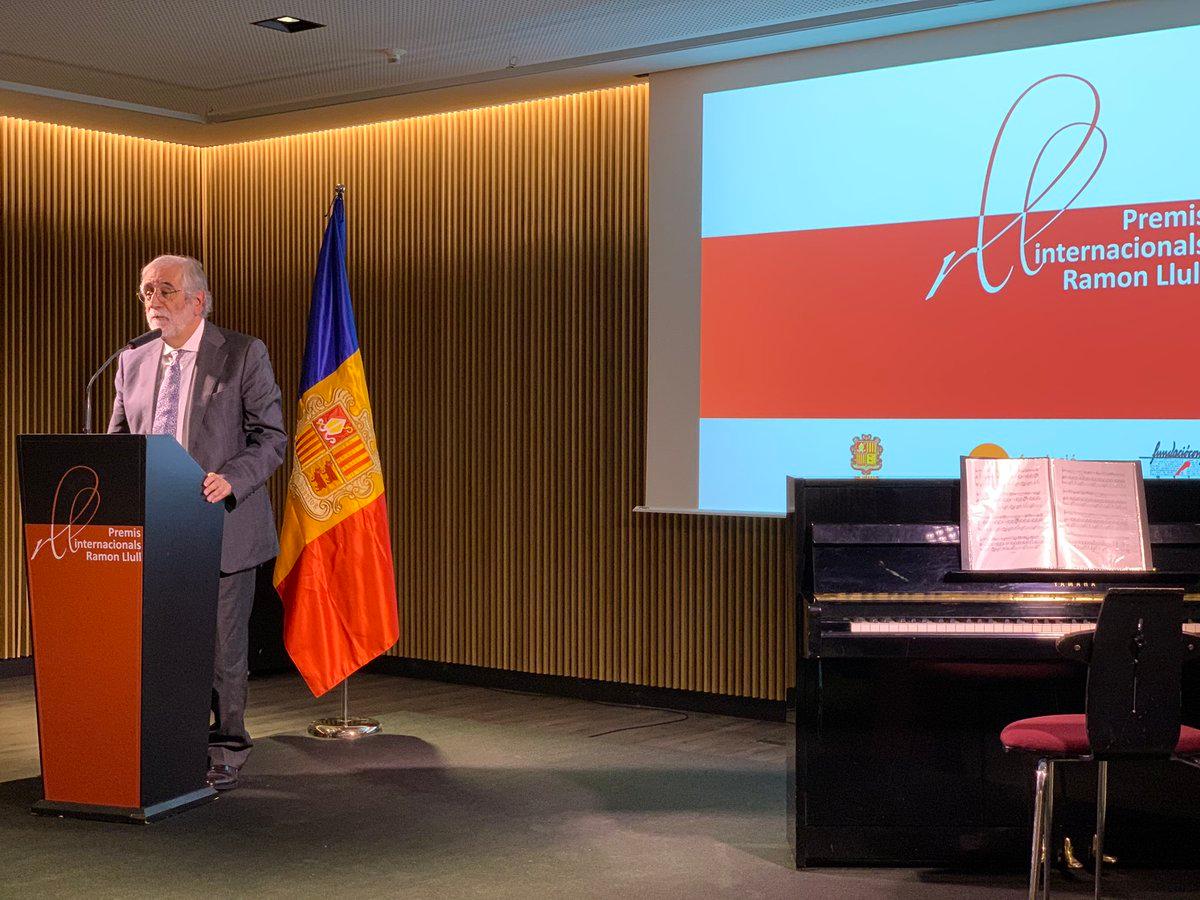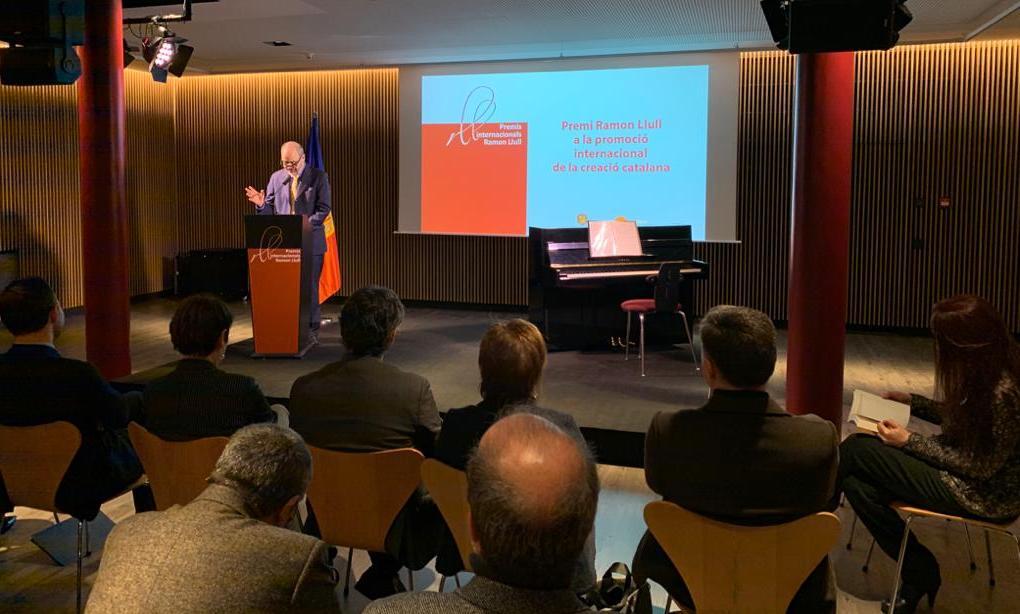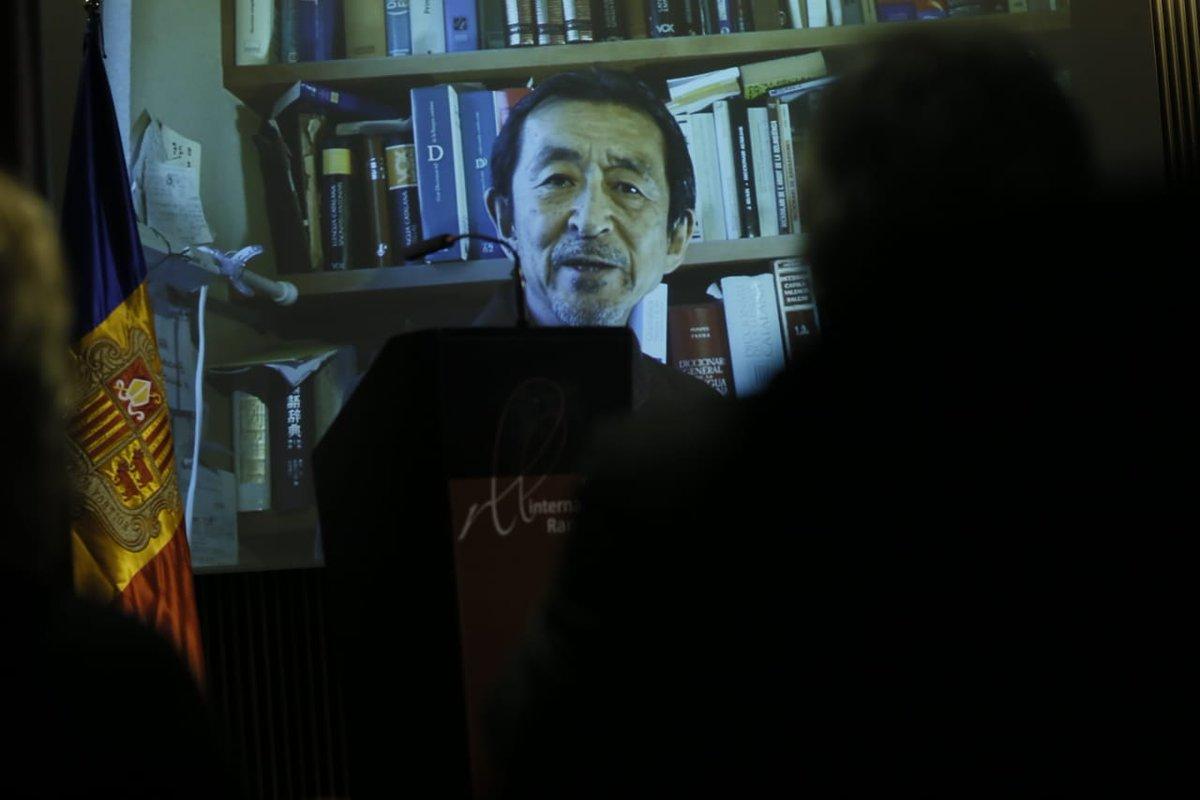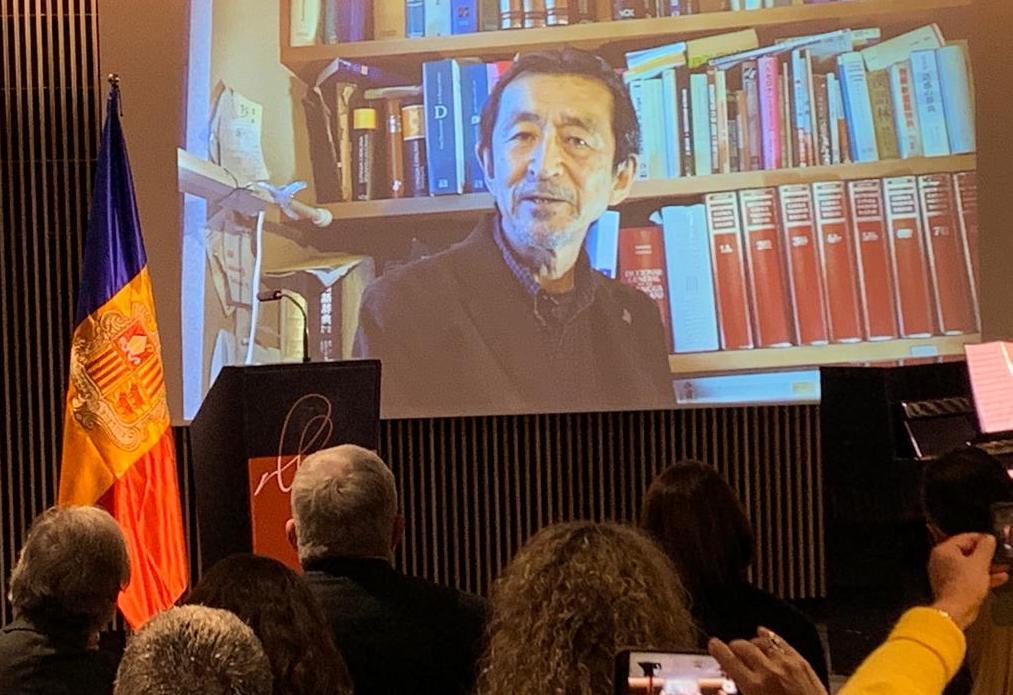The awards ceremony was held at the National Auditorium of Andorra, in Ordino. Present at the event were the director of the Ramon Llull Foundation, Vicenç Villatoro; the director of the Ramon Llull Institute, Iolanda Batallé; president of the Congress of Catalan Culture Foundation, Agustí Alcoberro; and head of the Government of Andorra, Xavier Espot.
“To fall in love with a language, with a culture, is to fall in love with the people who introduce them to us. These people are today’s award winners”, affirmed Iolanda Batallé, who went on to say that one of the Llull Foundation’s missions is to “share our love and respect for the language, culture and literature of all Catalan-speaking territories”.
According to the director of the Ramon Llull Foundation, Vicenç Villatoro, “the Ramon Llull Foundation is a meeting point for public institutions from all Catalan-speaking territories interested in banding together around a commitment to one thing: the Catalan language and culture”. In this regard, these awards “honour people and institutions that support the international dissemination of the Catalan language and culture”, an area in which Villatoro wanted to “thank the ambassadors who understand and explain our culture with empathy and esteem around the world for their efforts”, adding that “we need, perhaps now more than ever, people to explain who were are outside our borders”.
According to the head of the Government of Andorra, Xavier Espot, “Catalan language and culture have always stood out thanks to their immense international presence. This desire to build bridges and for dialogue, something undoubtedly inherent in the Catalan language and culture, coincides with the spirit of Andorra and our country’s historical mission. We are a bridge between two Pyrenean countries and a place of dialogue, freedom and respect, the key elements to any cultural creation”. Espot also reminded attendees that Ordino, the site of the event, was also where Jacint Verdaguer wrote some of the most famous lines from Canigó, one of the great works of Catalan literature.
Michael Mason and the “impressive vitality” of popular culture
The Award for the International Promotion of Catalan Creation distinguishes a foreign person or institution that has demonstrated a particular sensitivity to Catalan culture and worked to lend it greater visibility on an international stage. The award is endowed with a sum of €4,000. This year, the jury decided to give this award to Michael Mason, who, according to Villatoro, “has a vital interest in Catalan culture”.
Ever since it began in 1967, Folklife has always sought to include minority cultures. “To us”, indicated Mason, “cultural diversity is an internationally significant and highly powerful value and, in this case, one of the best ways to explain to the public the differences that exist in Iberia”.
“I have always had an appreciation for Catalan culture, to which I am extremely grateful”, continued the folklorist. “The presence of Catalonia in the festival was an opportunity for people to make comments about the country’s culture”. In this sense, popular Catalan culture “has an impressive vitally and an extremely high level of commitment, which is something I find very moving”, he affirmed.
Villatoro then remarked on the two added values inherent in the award given to Mason. On the one hand, the fact that the festival takes place in the United States, “the greatest stage imaginable for promoting a culture internationally”. And, secondly, “because rarely does popular culture makes its way onto events programmes. Something which shows that popular Catalan culture also serves to explain topical issues”.
Annie Bats and translation as a battle
The Ramon Llull Award for Literary Translation is awarded by the Ramon Llull Foundation and recognises the author of the best literary translation from Catalan published in the year prior to that of the call. Any literary works with exclusive authorship status that have been translated from Catalan and published during the previous year are eligible for the award. This year, the award, endowed with a sum of €4,000, went to French translator Annie Bats for her adaptation of Llefre de tu (Ogre de toi) by Majorcan author Biel Mesquida.
“This award recognises a complicated work. A challenging, poetic work in which the literary quality of the original weighs heavily”, admitted Bats. Particularly interested in poetry, the translator highlighted her “efforts to recreate” the original. “It is a battle: translation is not only a means of conveyance, it is the relationship between the original text and the host language, as well as the relationship between the translator and the author”. Bats is therefore very happy with the final result of the work by Mesquida: “working with Biel was both fascinating and gratifying”.
“After exhausting all of the linguistic resources in the Alcover-Moll dictionary, I was forced to turn to him”, explains Bats, in reference to the relationship she established with the author. “The original work contains numerous plays on words, resonances, rhythms and a selection of words that only he could explain. Otherwise, they would have been practically indecipherable or impossible to interpret”. “Let me also say that Biel’s work is a clear tribute to French literature, so, in a way, this translation has helped it come full circle”.
Villatoro emphasised the “richness and difficulty” of the translation in and of itself and that fact that it was translated into French, “one of the world’s most important ports of entry”.
Ko Tazawa, the connection between Japan and Catalonia
The International Ramon Llull Award for Catalan Cultural Studies and Linguistic Diversity, which this year marks its 29th edition, recognises the individual work, written in any language, of a person outside the linguistic domain who has made a significant contribution to knowledge about Catalan history and culture or the theoretical or practical contribution of a person from any country to understanding, recognising, promoting or defending one or more stateless cultures or nations.
This distinction is jointly award by the Ramon Llull Foundation and the Congress of Catalan Culture Foundation and is endowed with a sum of €6,000. This year, the honour went to Japanese professor, translator and spokesperson Ko Tazawa, who was unable to attend the ceremony due to health reasons; an individual with great merit in “his dedication to Catalan cultural studies and his outstanding work creating links between the Catalan and Japanese languages and cultures”.
According to M. Carme Junyent, as expressed in the comments about the award, “Given today’s current concern about the climate crisis and its associated catastrophes, the reflections made by Tawaza, a great builder of bridges, remind us of things that must never again come to pass”.


